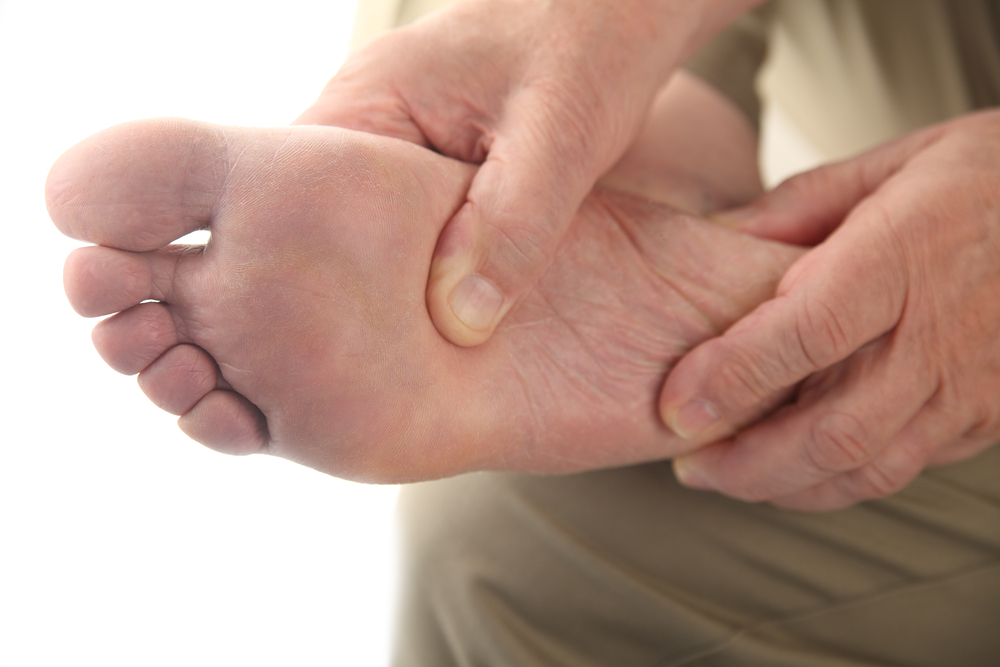Blog
Gradually Increasing Speed and Mileage May Help to Prevent Running Injuries
 People who enjoy running may overlook foot pain, which in turn can develop into serious foot conditions. Research has indicated it is beneficial to practice proper warm-up and cool down routines, as this may be helpful in preventing running injuries. Patients who are new to the sport of running are advised to start slowly, and gradually increase their speed and mileage. Additionally, it is beneficial to alternate running shoes, which may be helpful in prolonging shock absorption. If you would like more information about how running injuries can affect the feet and how to prevent them, please consult with a podiatrist.
People who enjoy running may overlook foot pain, which in turn can develop into serious foot conditions. Research has indicated it is beneficial to practice proper warm-up and cool down routines, as this may be helpful in preventing running injuries. Patients who are new to the sport of running are advised to start slowly, and gradually increase their speed and mileage. Additionally, it is beneficial to alternate running shoes, which may be helpful in prolonging shock absorption. If you would like more information about how running injuries can affect the feet and how to prevent them, please consult with a podiatrist.
All runners should take extra precaution when trying to avoid injury. If you have any concerns about your feet, contact one of our podiatrists of Pennsylvania. Our doctors will treat your foot and ankle needs.
How to Prevent Running Injuries
There are a lot of mistakes a runner can make prior to a workout that can induce injury. A lot of athletes tend to overstretch before running, instead of saving those workouts for a post-run routine. Deep lunges and hand-to-toe hamstring pulls should be performed after a workout instead of during a warmup. Another common mistake is jumping into an intense routine before your body is physically prepared for it. You should try to ease your way into long-distance running instead of forcing yourself to rush into it.
More Tips for Preventing Injury
- Incorporate Strength Training into Workouts - This will help improve the body’s overall athleticism
- Improve and Maintain Your Flexibility – Stretching everyday will help improve overall performance
- “Warm Up” Before Running and “Cool Down” Afterward – A warm up of 5-10 minutes helps get rid of lactic acid in the muscles and prevents delayed muscle soreness
- Cross-Training is Crucial
- Wear Proper Running Shoes
- Have a Formal Gait Analysis – Poor biomechanics can easily cause injury
If you have any questions, please feel free to contact one of our offices located in Plymouth Meeting and Ambler, PA . We offer the newest diagnostic and treatment technologies for all your foot care needs.
Why Do I Need an Ankle-Brachial Index Test?
 The Ankle-Brachial Index (ABI) test is a simple, fast, and noninvasive screening tool used to detect peripheral artery disease (PAD), a condition that causes poor circulation in the lower limbs. A doctor may suggest that you undergo an ABI test if you are at risk for or have symptoms of PAD. People who are older than 70, have diabetes, high lipid levels, smoke, or have abnormal pulses in their legs can have an increased risk of developing PAD. While usually asymptomatic in its earliest stages, PAD can progressively worsen and cause leg pain, cramps, and numbness, among other symptoms. An ABI test is done by measuring the blood pressure at your arm and at your ankle using a blood pressure cuff. The two numbers are then compared to each other to determine your risk of PAD. For more information about PAD, please consult with a podiatrist.
The Ankle-Brachial Index (ABI) test is a simple, fast, and noninvasive screening tool used to detect peripheral artery disease (PAD), a condition that causes poor circulation in the lower limbs. A doctor may suggest that you undergo an ABI test if you are at risk for or have symptoms of PAD. People who are older than 70, have diabetes, high lipid levels, smoke, or have abnormal pulses in their legs can have an increased risk of developing PAD. While usually asymptomatic in its earliest stages, PAD can progressively worsen and cause leg pain, cramps, and numbness, among other symptoms. An ABI test is done by measuring the blood pressure at your arm and at your ankle using a blood pressure cuff. The two numbers are then compared to each other to determine your risk of PAD. For more information about PAD, please consult with a podiatrist.
Vascular testing plays an important part in diagnosing disease like peripheral artery disease. If you have symptoms of peripheral artery disease, or diabetes, consult with one of our podiatrists from Pennsylvania. Our doctors will assess your condition and provide you with quality foot and ankle treatment.
What Is Vascular Testing?
Vascular testing checks for how well blood circulation is in the veins and arteries. This is most often done to determine and treat a patient for peripheral artery disease (PAD), stroke, and aneurysms. Podiatrists utilize vascular testing when a patient has symptoms of PAD or if they believe they might. If a patient has diabetes, a podiatrist may determine a vascular test to be prudent to check for poor blood circulation.
How Is it Conducted?
Most forms of vascular testing are non-invasive. Podiatrists will first conduct a visual inspection for any wounds, discoloration, and any abnormal signs prior to a vascular test.
The most common tests include:
- Ankle-Brachial Index (ABI) examination
- Doppler examination
- Pedal pulses
These tests are safe, painless, and easy to do. Once finished, the podiatrist can then provide a diagnosis and the best course for treatment.
If you have any questions, please feel free to contact one of our offices located in Plymouth Meeting and Ambler, PA . We offer the newest diagnostic and treatment technologies for all your foot care needs.
How Feet May Show Early Warning Signs of Diabetes
According to The National Diabetes Statistics Report of 2020, over 34 million Americans over the age of 18 had diabetes in 2018. However, 7.3 million of those people were either not aware they had diabetes or did not report it. It is important to be properly diagnosed and treated for diabetes promptly as this chronic disorder causes elevated blood sugar levels which can lead to several negative health conditions throughout the body—including diabetic foot problems due to poor circulation and nerve damage. Your feet can often present warning signs of diabetes such as numbness in your toes or feet, tingling, burning, swelling, lack of feeling, or change of skin color in your feet, open sores that won’t heal, ankle pain, and more. If you notice any of these symptoms or are experiencing any pain in your feet or ankles, it is suggested that you contact a podiatrist for a thorough examination and proper diagnosis.
Diabetic foot care is important in preventing foot ailments such as ulcers. If you are suffering from diabetes or have any other concerns about your feet, contact one of our podiatrists from Pennsylvania. Our doctors can provide the care you need to keep you pain-free and on your feet.
Diabetic Foot Care
Diabetes affects millions of people every year. The condition can damage blood vessels in many parts of the body, especially the feet. Because of this, taking care of your feet is essential if you have diabetes, and having a podiatrist help monitor your foot health is highly recommended.
The Importance of Caring for Your Feet
- Routinely inspect your feet for bruises or sores.
- Wear socks that fit your feet comfortably.
- Wear comfortable shoes that provide adequate support.
Patients with diabetes should have their doctor monitor their blood levels, as blood sugar levels play such a huge role in diabetic care. Monitoring these levels on a regular basis is highly advised.
It is always best to inform your healthcare professional of any concerns you may have regarding your feet, especially for diabetic patients. Early treatment and routine foot examinations are keys to maintaining proper health, especially because severe complications can arise if proper treatment is not applied.
If you have any questions please feel free to contact one of our offices located in Plymouth Meeting and Ambler, PA . We offer the newest diagnostic and treatment technologies for all your foot and ankle needs.


